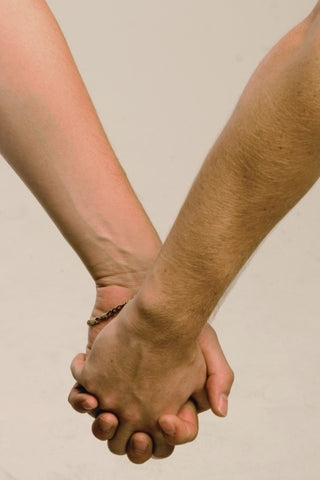February 27, 2024
Libido, often referred to as one's sexual desire or drive, is a fundamental aspect of human experience that goes beyond mere physicality. It intertwines with our emotions, relationships, and overall well-being, serving as a barometer of our health in more ways than one. However, libido isn't a one-size-fits-all phenomenon, and its fluctuations can be influenced by a myriad of factors, making it a complex aspect of human sexuality. When it comes to libido, it's crucial to acknowledge its multifactorial nature.
While many assume that low libido stems solely from physical issues, the reality is far more nuanced. Emotional factors, mental health, relationship dynamics, hormonal imbalances, medications, lifestyle habits, and underlying medical conditions can all contribute to fluctuations in libido. Think of libido as an indicator for your overall health. Just as changes in appetite, sleep patterns, or mood can signal underlying health issues, alterations in libido can also indicate imbalances within your body and mind. Paying attention to shifts in your libido can prompt you to explore potential underlying causes and seek appropriate solutions to restore balance and vitality to your life.

Hormonal Imbalances: Fluctuations in hormones, such as testosterone, estrogen, progesterone, and thyroid hormones, can significantly impact libido.
Stress and Mental Health Issues: Anxiety, depression, chronic stress, and other mental health conditions can dampen sexual desire.
Cardiovascular Issues: Conditions such as cardiovascular disease, atherosclerosis, and high blood pressure can impair blood flow to the genitals, leading to decreased sexual desire.
Medications: Certain medications, including antidepressants, antihypertensives, and hormonal contraceptives, may have side effects that affect libido.
Lifestyle Factors: Poor diet, lack of exercise, excessive alcohol consumption, smoking, and sleep deprivation can all negatively impact libido.
Underlying Medical Conditions: Conditions such as diabetes, obesity, cardiovascular disease, and chronic pain can contribute to low libido.
Fortunately, there are natural ways to reignite the flames of desire and enhance libido. Incorporating herbal remedies into your daily routine can not only directly boost libido but also help to address the underlying causes for low sexual desire.
Additionally, making positive lifestyle changes such as regular exercise, eating a balanced diet, managing stress effectively, prioritizing quality sleep, and fostering open communication and connection with your partner can further support a healthy libido. By combining the power of the best herbs for your libido with mindful lifestyle adjustments, you can enhance your sexual desire and embark on a journey towards greater intimacy and satisfaction.
Ashwagandha: As an adaptogen, ashwagandha can help reduce stress and anxiety, which may indirectly improve libido. In Ayurvedic medicine this herb is also traditionally used as a sexual tonic, renowned for promoting the sexual stamina of a horse!
Tribulus: A powerful aphrodisiac tonic that is rejuvenating for the reproductive organs. This herb also helps to boost testosterone which is one of the hormones involved in increased sexual desire.
Shatavari: An adaptogenic tonic that is both aphrodisiac and nourishing. This herb can also help to relieve vaginal dryness associated with menopause.
Siberian ginseng: An energizing adaptogen herb for your libido that aids to reduce stress and improves the mood.
Damiana: A traditional aphrodisiac known for its potential to improve sexual function and stimulate libido, making it a popular choice for enhancing sexual desire and pleasure. This herb can also help to ease symptoms of anxiety and depression.
Mucuna: Another herb from Ayurvedic tradition, this is one of the best reproductive tonics for both males and females. Mucuna has been used to support sexual health and enhance libido, thanks to its potential to increase dopamine levels in the brain, which can positively influence sexual desire and pleasure

Regular Exercise: Engaging in regular physical activity not only improves overall health but also enhances circulation, mood, and self-confidence, all of which can positively influence libido. Aim for at least 30 minutes of moderate-intensity exercise a few times per week.
Balanced Diet: Consuming a nutritious diet rich in fruits, vegetables, lean proteins, and whole grains provides essential nutrients that support hormone production and overall well-being. Certain foods, such as those high in zinc (e.g., oysters, nuts, seeds) and omega-3 fatty acids (e.g., fatty fish, flaxseeds), may also have aphrodisiac properties.
Stress Management: Chronic stress can significantly dampen libido, so finding effective ways to manage stress is essential. Techniques such as mindfulness meditation, deep breathing exercises, yoga, and spending time in nature can help reduce stress levels and improve sexual desire.
Quality Sleep: Prioritizing adequate sleep is crucial for maintaining hormonal balance and overall health. Aim for 7-9 hours of quality sleep per night by establishing a relaxing bedtime routine and creating a comfortable sleep environment.
Communication and Connection: Open communication with your partner about your sexual needs, desires, and concerns is vital for maintaining a satisfying intimate relationship. Building emotional intimacy, engaging in non-sexual physical affection, and scheduling regular date nights can also help strengthen the bond between partners and reignite desire.
Limit Alcohol and Cigarette Consumption: Excessive alcohol consumption and smoking can negatively impact sexual function and libido. Limiting alcohol intake and quitting smoking can improve overall health and enhance sexual desire and performance.
Working one-on-one with a herbalist offers a personalized approach to addressing low libido, allowing for a comprehensive assessment of individual health factors and concerns. A skilled practitioner can delve into potential underlying causes for low libido, such as hormonal imbalances, stress, or lifestyle factors, and work on a root cause level to develop a tailored treatment plan focused on restoring balance and vitality to one's sexual health.
Understanding and addressing low libido involves a multifaceted approach that encompasses both herbal remedies and lifestyle adjustments. By exploring the intricate interplay of physical, emotional, and psychological factors, you can reclaim your sexual vitality and experience greater intimacy and satisfaction. Whether seeking guidance from a herbalist, incorporating herbs for your libido, or making positive lifestyle changes, embracing a holistic approach to sexual wellness can lead to a more fulfilling and vibrant life.
Remember, prioritizing your sexual health is an essential aspect of overall well-being, and taking proactive steps to support it can pave the way for a more satisfying and joyful journey ahead.
Written by Leah Schmutter
Medical Herbalist and Holistic Nutritionist
January 23, 2026
Digestive discomfort is incredibly common. Gas, bloating, heartburn, constipation, stress-tummies… most of us experience at least one of these on a regular basis. While food choices, stress, and daily habits all influence digestion, herbs have a unique way of gently guiding the digestive system back toward balance.
November 14, 2025
Discover the benefits of St John’s Wort Tea, how to brew it properly, and what to know about safe, mindful use. Learn why herbalists turn to this bright, uplifting plant for emotional balance and seasonal support.
October 17, 2025
Brew the best chamomile tea from organic dried flowers. A gentle, golden cup that soothes the senses, bringing calm, warmth, and a touch of natural sweetness.
3396 Addlington Place, Victoria BC
In house shopping by appointment only
Our business hours are Mon-Fri, 9am - 5pm
